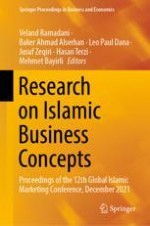This book presents selected chapters from the proceedings of the 12th Global Islamic Marketing Conference (June 2021). The chapters provide an up-to-date overview of research and insights into Islamic business practices in general and Islamic marketing strategies in particular. Papers include topics such as understanding Muslim consumer behavior, services marketing, implications and implementation of Halal business practices, social media marketing, ecommerce strategies, and overall business strategy. This book is helpful for researchers interested in the specialties of the topic and also for business consultants who wish to have an in-depth understanding of doing business in Islam-oriented regions.
